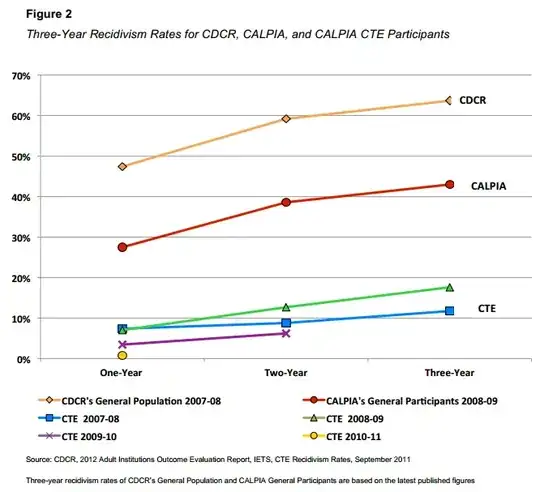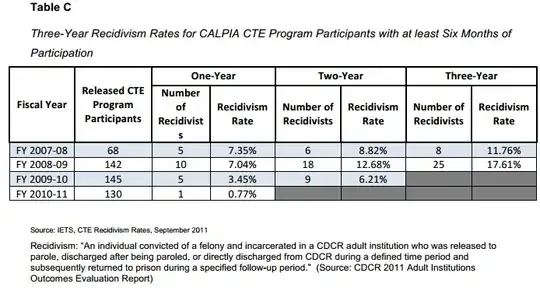I'm having difficulty finding statistics comparing the recidivism rates of regular prisoners and the ones that worked while serving the sentence. I can't remember where but I've read that "specialists believe working in prisons can reduce recidivism from 70% to 20%" in several different publications and I never really questioned how they got the number.
Claims:
The following graph was made by CALPIA itself and evalutes the recidivism rate of a very limited sample space. http://www.calpia.ca.gov/pdf/Public_Affairs/PIB_CTEducation_Assessment_Report_Nov12.pdf

Detailed table about CTE:
